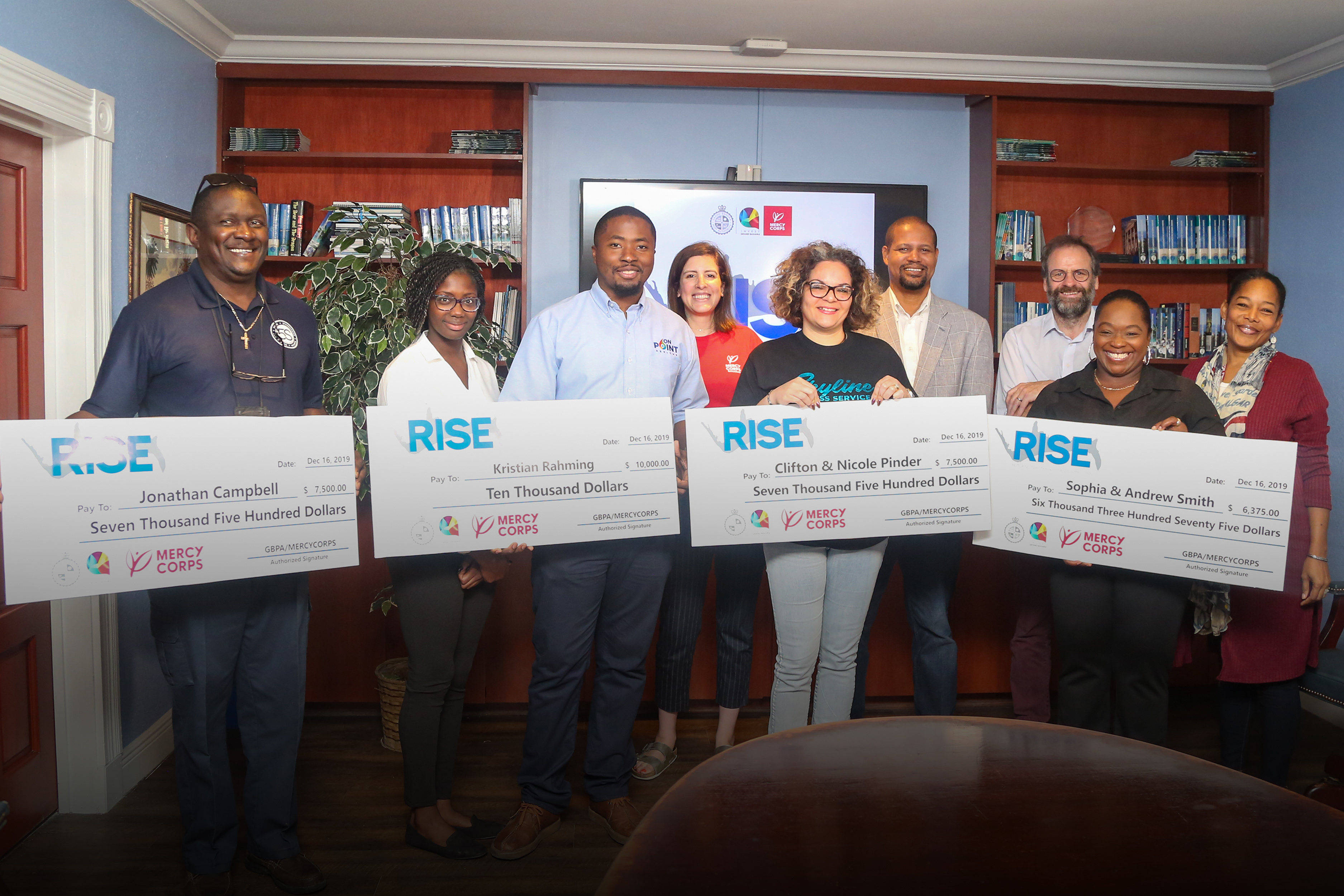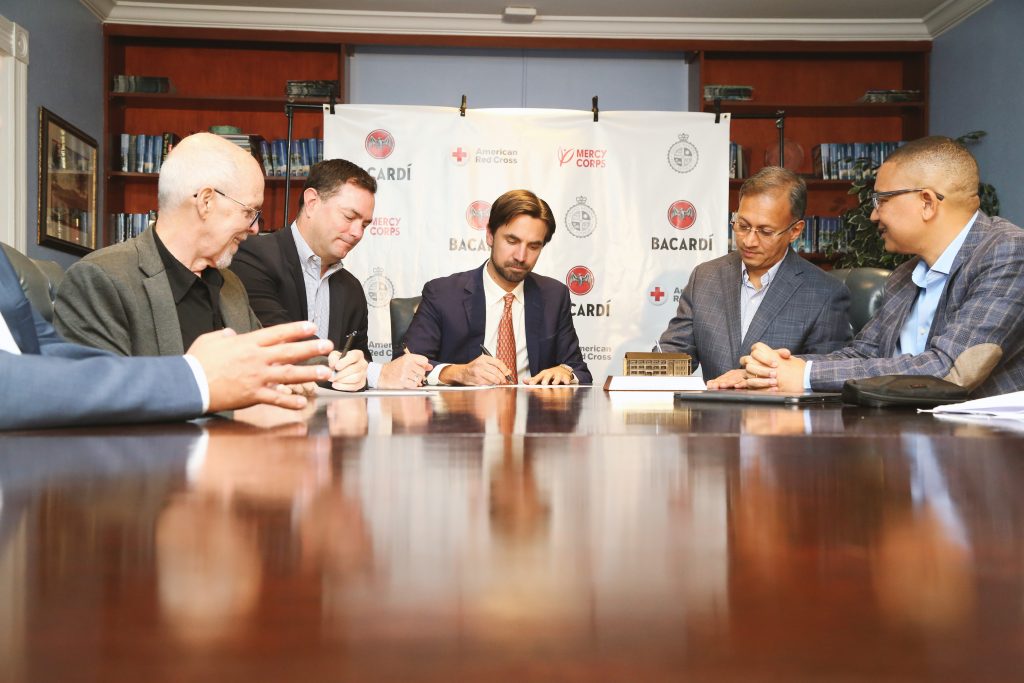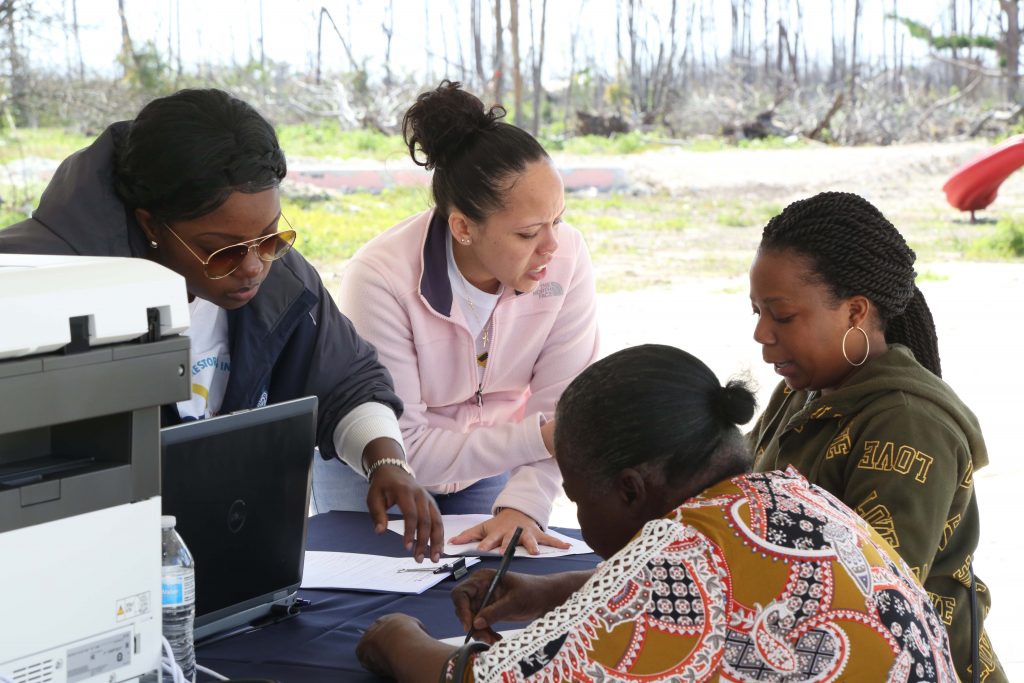BAHAMAS, March 29, 2021 – It has been eighteen months since the passage
of Hurricane Dorian and fifteen months since the Restoring Industries,
Sustaining Employment (RISE) initiative journey began. While evidence of the
catastrophic Category Five storm is still very much apparent, so too is the
reemergence of more resilient pockets of economic activity throughout the
length and breadth of Grand Bahama – a reemergence hundreds of business owners
believe would have been considerably more challenging without the RISE program’s
support.
The RISE initiative is a collaboration between
implementing partners Mercy Corps, a global humanitarian organization, and The
Grand Bahama Port Authority, Limited (GBPA), with the generous financial
support of the American Red Cross and Bacardi Limited. As the initiative
officially comes to a close, its impact can be seen and felt in the day-to-day
operations of the businesses it has empowered and helped.
Mercy Corps Bahamas’ Country
Director, Paula Miller, attributes the accomplishments of RISE to the generous
financial support of its donors, GBPA as the implementing partner,
and the adaptability and incredible resourcefulness of business owners. “This
initiative would not have been possible for any single agency to do alone,”
said Ms. Miller. “We have really enjoyed working together with GBPA, and it is
inspiring to see Grand Bahama businesses re-opening despite a pandemic on top
of a natural disaster. While this
particular initiative is closing, we stand ready to support Grand Bahama in
future initiatives if needed.”
The RISE pilot launched in
December 2019, supporting local merchants in the run up to the business year’s
most profitable shopping season. The program’s initial goal was to assist 100
local businesses that were impacted by Dorian with grants of up to $10,000 to
support their recovery efforts. As the pilot program was monitored and its
impact and success measured, the RISE team reevaluated its goals and revised
its targets upward, aiming to provide $2.5 million in funding to nearly 300
micro and small businesses across Grand Bahama.
Derek Newbold, Sr. Manager of
Business Development for GBPA and Invest Grand Bahama, expressed, “GBPA is profoundly appreciative of the partnership created through the RISE initiative,
and its accomplishments on Grand Bahama. We are extremely proud of each
participant’s progress within their respective businesses and what that means
for the business community as a whole moving forward.
“Business owners across the island continue to
manifest the tangible and meaningful impact of the RISE initiative,” Mr.
Newbold continued. “For many, it helped them defy the odds of a post-Dorian
recovery, while creating a bolstering effect to help soften the impact of the
COVID-19 global pandemic. Equally important, we are impressed to hear
participants speak of the value of the business resiliency training and
mentorship aspects of the program, which many asserts have helped them emerge
stronger and much more prepared to face similar challenges moving forward.”
Comments such as “I started
budgeting for the first time” and “I learned I’m actually really good at social
media marketing” are common sentiments shared among business owners helped
through the RISE initiative.
“A lot of work went into measuring the impact
of RISE,” said Allison Dworschak, Program Quality and Partnerships Lead for Mercy
Corps. “The data we gathered during the program tells us a lot about the
strength and resilience of the small business community in Grand Bahama. For
example, 87 per cent of participants reopened and were regularly transacting
after they received the funding and training. More than a quarter said that,
without RISE, they wouldn’t have reopened at all. Another 12 per cent said they
likely would have reopened eventually, but wouldn’t have retained staff.
Others leveraged the program to expand and
grow. “The RISE program did a lot of good, but we are especially excited to
have saved at least 300 local jobs,” continued Ms. Dworschak. “And looking at
how the $2.5 million in grant funds were spent, we know the majority – 75 per
cent – was reinvested locally into reconstruction, large equipment repairs and
other local purchases. These numbers would be good in any small business
disaster recovery program, but I think the RISE team and the community should
be extremely proud of what these business owners have achieved, especially considering
everything they’ve been up against since September 2019.”
GBPA and Mercy Corps are
considering future ways to collaborate in the event of a new crisis. GBPA
Executive Director Henry St. George commented, “When a restaurant that had been
damaged by Hurricane Dorian was able to reopen having received a RISE grant,
and then partnered with another recipient who was able to provide delivery
services, and together they collaborated to distribute meals to the aged and
vulnerable during the summer lockdown last year, then the impact of the program
and the significance of the small business community was really visible.
“We are highly aware of the work still to be done in rebuilding our small business economy, but we are extremely proud of the RISE program and even more so of the men and women who participated in it,” added Mr. St. George. “Our partnership with NGO Mercy Corps has been a crucial pillar of our response to Dorian, and we are grateful to them and to both the American Red Cross and Bacardi.”
Release: GBPA
Photo Captions:
Header:The RISE pilot launched in December 2019, supporting local merchants in the run up to the business year’s most profitable shopping season. The program’s initial goal was to assist 100 local businesses impacted by Dorian with grants of up to $10,000 to support their recovery efforts. Pictured from left to right are grant recipients of the RISE Initiative Pilot Cohort: Jonathan Campbell – 5S Maintenance Service; Virginia Cooper, Program Officer – Mercy Corps; Kristian Rahming – OnPoint Designs & Printing; Kelsey Lundgren, Project Officer – Mercy Corps; Nicole Pinder – Skyline Express; Derek Newbold, Sr. Manager of Business Development – GBPA Group; Pete Sweetnam, In-Country Director – Mercy Corps; Sophia Smith – Escante Boutique; and LaShawn Dames, Business Services Manager & RISE Program Coordinator – GBPA.
1st insert: Partners of the RISE economic recovery initiative have supported the post-Dorian recovery efforts of nearly 300 micro and small businesses across the Grand Bahama, with upwards of $2.5 million in grant and post-COVID assistance. Picture from left to right are the RISE Initiative executives; Al Panico, Field Representative – American Red Cross Society; Michael Bowers, VP Humanitarian Leadership – Mercy Corps; Henry St. George, Director – GBPA; Mahesh Madhavan, CEO – Bacardi Limited; and Ian Rolle, President – GBPA Group.
2nd insert: As the RISE initiative officially comes to a close, its impact can be seen and felt in the day-to-day operations of the businesses it has empowered and helped. Pictured are members of the RISE Team Kerline McPhee, GBPA Customer Relations Officer (top left) with Ashleigh Lockhart, MC Program Manager (top right), providing one-on-one support to East Grand Bahama residents during a site information session for the RISE Initiative (photo taken in early 2020 before the onset of COVID-19). The RISE team continued all program activities throughout 2020 despite the COVID-19 lockdowns, delivering greatly needed support to RISE program participants.


 News6 days ago
News6 days ago
 Caribbean News7 days ago
Caribbean News7 days ago
 News6 days ago
News6 days ago













